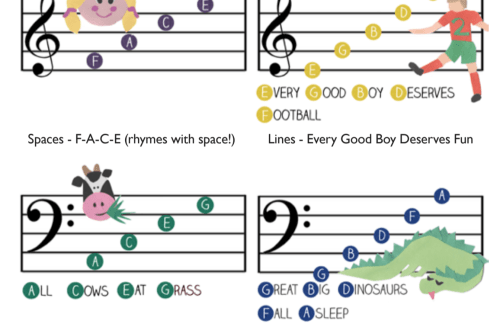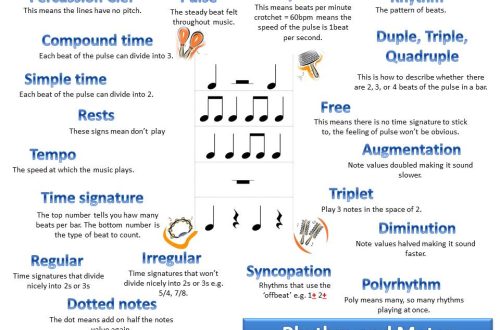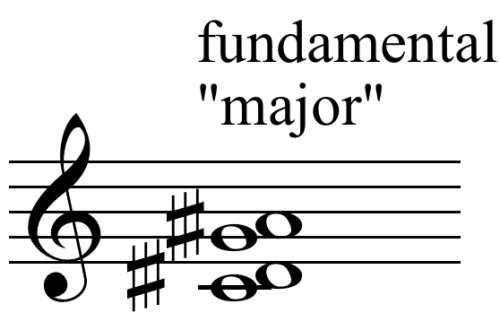
Musical Keys
Contents
How to easily understand what sound corresponds to the location of the note on the stave?
Key
The clef is an element of musical notation that determines the location of notes on the stave. The key specifies the placement of one of the notes from which all other notes are counted. There are several types of keys. We will look at 3 main ones: Treble clef, Bass clef and Alto clef.
Treble clef
This clef indicates the position of the note G of the first octave:

Figure 1. Treble clef
Pay attention to the red line of the stave. It covers the key with its curl. This clef indicates the location of the G note . To complete the picture, we drew a note on the stave. This note is located on the red line (which wraps around the key), so this is the note sol .
All other notes will be placed according to the note indicated by the key. We remember the order of the main steps: do-re-mi- beans – lyasi . Let’s place these notes taking into account the place of the G note :

Figure 2. Notes of the first octave in the treble clef
In figure 2, we have placed notes from do (the very first note, located at the bottom on the additional line) to si (on the center line). The last character is a pause.
Bass clef
Indicates the position of the note F of the small octave. Its outline resembles a comma, the circle of which indicates the line of the note fa . We highlighted this line in red again:

Figure 3. Bass clef
Here is an example of the arrangement of notes before -re-myth- sol -lya-si on a stave with a bass clef Fa :

Figure 4. Notes of a small octave in the bass clef
Alto Key
This key indicates the location of the note C to the first octave: it is located on the middle line of the stave (the line is highlighted in red):

Figure 5. Alto clef
Examples
The question may arise: “Why can’t you get by with one key”? It is convenient to read notes when most of the notes are located on the main lines of the stave, without additional lines above and below. In addition, the melody is thus recorded more compactly. Consider an example of using keys.
Melody from the TV show “Visiting a Fairy Tale”, the first 2 measures. In the Treble clef G , this melody looks like this:

Figure 6. Melody “Visiting a fairy tale” in the treble clef
And this is what the same melody looks like in the Bass clef Fa :

Figure 7. The melody “Visiting a Fairy Tale” in the bass clef
In Alto clef C , the same melody looks like this:

Figure 8. Melody “Visiting a fairy tale” in the alto clef
In the case of recording a melody in the key of Sol , the notes are placed on the stave without additional rulers. In the bass clef F , the melody is completely recorded on additional lines, which complicates both reading and recording. In the alto clef, most of the melody is recorded on additional rulers. This is also inconvenient.
And vice versa: if the bass part is recorded in the treble or alto clef, then all or most of the notes will be located on additional lines. Thus, different keys make it easier to read and write low or high notes.
Separately, we note that there are other keys. They are discussed in detail in the article “ Keys. Review “.
To consolidate the material, we suggest you play: the program will show the key, and you will determine its name.
Summary Now you know the 3 main clefs :
Treble Clef G , Bass F and Alto C.




